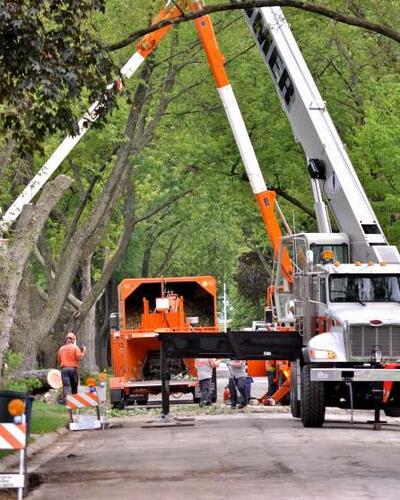
Cities are defined, by most, by their built environment: towering buildings, miles of roads and sidewalks, modes of transportation, and public utilities. But with the threats of climate change looming, researchers are looking for ways to turn vast swaths of natural areas in urban environments into tools to help offset the significant greenhouse gas emissions that cities produce.
In a recent study published in the journal One Earth, researchers from the Yale Center for Industrial Ecology conducted a multi-scale lifecycle assessment that explored methods for utilizing urban tree waste. Wide-scale adoption of more eco-friendly uses of urban tree waste could significantly reduce global warming potential in the United States, according to the researchers’ findings.